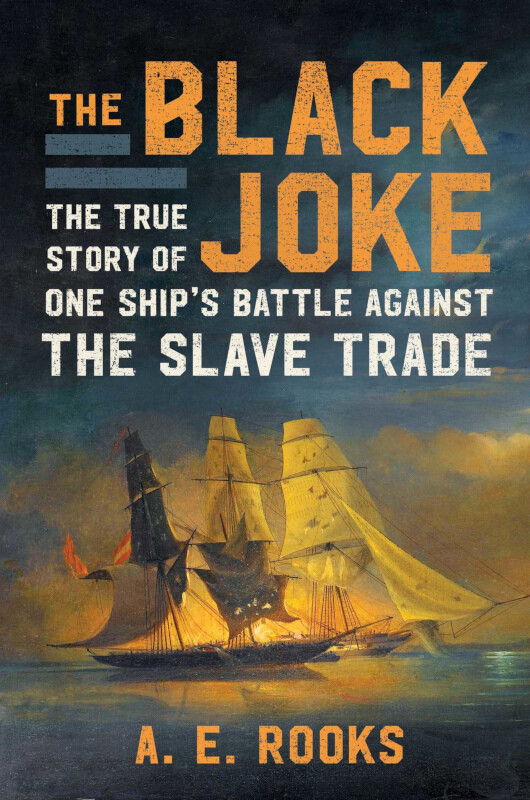Looking for a good read? Here is a recommendation. I have an unusual approach to reviewing books. I review books I feel merit a review. Each review is an opportunity to recommend a book. If I do not think a book is worth reading, I find another book to review. You do not have to agree with everything every author has written (I do not), but the fiction I review is entertaining (and often thought-provoking) and the non-fiction contain ideas worth reading.
Book Review
The Little Ship That Did
Reviewed by Mark Lardas
January 16, 2022
“The Black Joke: The True Story of One Ship’s Battle Against the Slave Trade,” by A.E. Rooks, Scribner, 2022, 400 pages, $29.00 (Hardcover), $14.99 (ebook), $16.50 (audiobook), $39.99 (audio CDs)
By the 1820s the transatlantic slave trade was largely outlawed. Great Britain and the US were early adaptors of its abolition. France and Spain were still winking at it (largely to twit Britain). Brazil would not outlaw the trade until 1831. Regardless, transatlantic transportation of slaves illegally continued.
“

The Black Joke: The True Story of One Ship’s Battle Against the Slave Trade,” by A.E. Rooks tells of a ship instrumental in closing down this illegal traffic. Never a formally-commissioned warship in the Royal Navy, it was the vessel of Britain’s West Africa Squadron most feared by slave traders.
Rooks carries the story from Black Joke ’s incorporation into the Royal Navy in 1827 through its disposal a five years later. Its career was brief, but as Rooks shows, its impact was profound.
Launched as Henriquetta in Baltimore for the slave trade, it was captured in 1827 by HMS Sybille with an illegal cargo of nearly 600 slaves. Renamed Black Joke and taken into Royal Navy service as a tender to Sybille , it was manned from Sybille ’s crew and technically part of Sybille . It was armed with a single swivel gun, firing 18-pound shot, and had a crew of up to forty, including marines.
Rooks describes what came next. Black Joke became the terror of the Slave Coast of Africa, capturing or participating in the capture of fourteen slavers and freeing over 5700 slaves. It was the most successful anti-slavery vessel on the coast. It was so effective Black Joke was transferred to a different warship HMS Dryad when Sybille returned to Britain.
Rooks also picks through the legal complexities and cultural issues associated with Black Joke and fighting the slave trade. She explains how international law constrained fighting the slave trade. Britain was looking for ways to cut government spending during this period, which further affected efforts. Both were reasons why Black Joke remained a tender rather than an independent warship. It kept costs down and simplified legalities.
Rooks makes a few errors (Great Britain does not have a Royal Army), but they are minor. More jarring is her use of modern jargon. This language will make this book seem dated and quaint a century from now. So too is her attempt to impose twenty-first century values on the eighteenth and nineteenth century. Regardless “The Black Joke” is a classic study on the subject. which will almost certainly be read a century from now.
Mark Lardas, an engineer, freelance writer, historian, and model-maker, lives in League City. His website is marklardas.com .